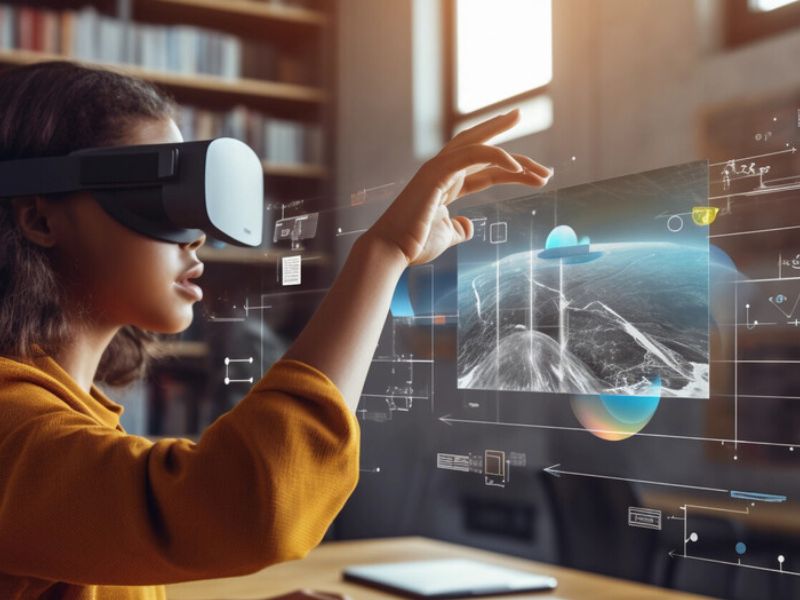Virtual reality (VR) technology is revolutionizing industries by enhancing training and simulation in ways previously unimaginable. From healthcare and aviation to manufacturing and education, organizations across sectors are embracing VR. It is being considered for its ability to provide realistic, immersive training environments. In this article, let’s explore how VR production is helping industries unlock training potential and simulation capabilities.
Realistic and Safe Learning Environments
One of the most significant benefits of virtual reality production in training is its ability to create realistic yet safe environments for learners. Imagine a healthcare setting where medical students can practise complex surgical procedures without any risk to patients or a hazardous manufacturing environment simulated to allow workers to handle dangerous materials in a safe space. With VR, these simulations provide realistic scenarios, enabling trainees to develop the skills and confidence needed for real-world applications.
Enhanced Retention Through Immersive Learning
Virtual reality offers a fully immersive experience that engages multiple senses, making it more likely that learners will retain the information. In fields like aviation, for instance, VR simulations allow pilots to experience high-stress situations repeatedly, which improves muscle memory and decision-making skills under pressure. This immersive, hands-on approach is much more effective than theoretical or lecture-based learning, allowing trainees to walk away with a deeper understanding of the material.
Cost-Effective Training Solutions
VR technology is a cost-effective alternative to traditional training methods, especially in industries that rely on expensive equipment or high-risk situations. Consider the costs associated with live training exercises for emergency responders, such as firefighters. VR can simulate these environments without the need for costly setups or potentially hazardous conditions, saving organisations considerable amounts on training expenses.
Global Collaboration and Remote Training
Virtual reality enables collaboration across geographic boundaries, allowing teams to train together in virtual spaces even if they are located on opposite sides of the world. This benefit is particularly relevant for global companies, military organisations, and educational institutions. In the context of remote work, VR can simulate in-person interactions, making it easier for teams to communicate and collaborate effectively. Furthermore, VR-based training solutions often support multiple languages, allowing organisations to provide consistent training experiences across diverse regions without the need for local trainers or materials.
Faster Skill Acquisition and Reduced Training Time
For many industries, time is of the essence, and lengthy training processes can be costly. VR accelerates the learning curve by placing trainees in realistic simulations where they can immediately apply their knowledge. Pilots, for instance, can complete a range of flight simulations that would typically take hours or days in a traditional training setup, speeding up the learning process and allowing for a quicker transition into real-world operations. Similarly, in technical fields like maintenance and repair, VR enables workers to practise repetitive tasks efficiently, reducing the time it takes to achieve competency.
Increased Confidence and Improved Outcomes
A key benefit of VR training is the boost in confidence that comes from repeated, hands-on practice. When individuals engage with virtual scenarios that mirror real-world challenges, they build familiarity and comfort with the tasks they will eventually perform. This approach is especially useful in high-stakes fields such as emergency response or surgery, where confidence is crucial to effective performance. By gaining practical experience in a virtual setting, learners are better equipped to handle challenges and emergencies, leading to improved outcomes in their actual work environments.
Virtual reality production is transforming training and simulation, providing safe, immersive, and cost-effective solutions that drive meaningful skill development across industries. From improving retention rates to enabling global collaboration, VR is setting new standards for training excellence. Whether you’re looking to minimise risks, reduce costs, or simply enhance the learning experience, virtual reality has the potential to redefine training for the modern world.



